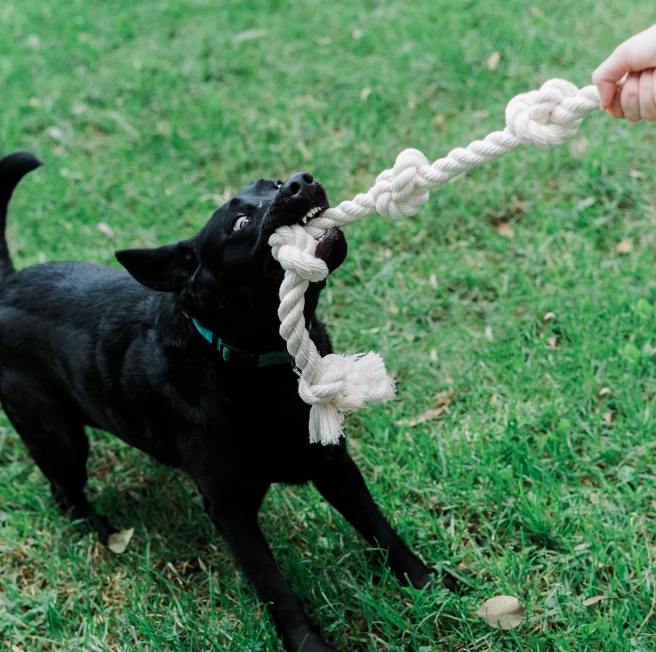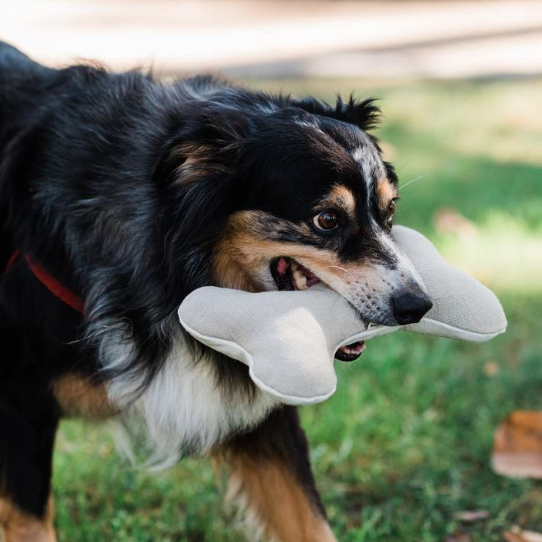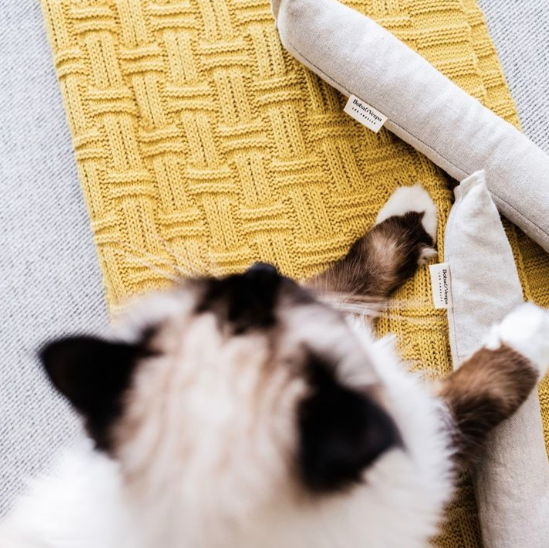Updated February 4, 2026
Important Note: Before giving your pet any supplement, please always speak with your veterinarian first.
Cats might be known for their independent and mysterious nature, but just like us, they can experience stress and anxiety.
As responsible pet parents, it's essential to understand the signs of a stressed cat, as well as how to create a calm environment for your feline friend. This awareness is particularly significant because, unlike dogs, who tend to display anxious behaviors, many cats conceal their emotions, making it challenging for pet owners to discern when their feline friends feel uneasy.
In this guide, we'll explore various strategies to calm your cat, from creating a safe space to incorporating calming elements in their daily routine.
Recognizing Cat Anxiety
Understanding your cat's behavior is crucial for identifying signs of anxiety. Cats react to stress in various ways. Here are some common signs that your cat might be anxious:
- Excessive grooming
- Hiding
- Avoiding their litter box (sometimes eliminating in inappropriate areas)
- Changes in appetite
- Repetitive behavior, such as scratching the furniture, chewing fabric, or excessively meowing
- Aggressive behavior
It’s important to rule out and address any underlying physical causes to the behaviors your cat may be manifesting with your Veterinarian. Additionally, stress itself can play a role in contributing to physical maladies.
Causes of Anxiety in Cats
Emotional Triggers
For cats adopted later in life, devoid of kittenhood experiences, the possibility of past trauma can play a role in their anxiety. For example, instances of abuse or neglect may render them sensitive to specific stimuli. In such cases, loud noises or solitude can be psychological triggers for your cat.
Insufficient Socialization
Limited exposure to other beings—whether fellow animals or humans—can foster fear in your cat. Facilitating a gradual and secure introduction of your kitten to other cats, dogs, and people can significantly contribute to their socialization and alleviate anxiety.
Environmental Stressors
Transitioning your cat to a new environment can also be a source of fear for some felines. It's important to stay attuned to environmental factors that might induce stress, including:
- Loud noises
- Presence of other animals
- Car rides
- Unfamiliar faces
- Novel surroundings - including the veterinarian's office
- New Odors
How to Calm a Stressed Cat
Creating a Safe Space
Cats, like humans, need a retreat where they can unwind to feel safe and secure. A cat tree, a quiet corner, or soft cat bedding can become their sanctuary. This Handmade Wool Cat Cave is the perfect hideaway. Not only is it compostable, but it's also made with anti-microbial and odor-resistant sustainable wool. Our guide to the best sustainable cat beds can help you select the best bed for your kitty.
Understanding Cat Body Language
Cats communicate through body language. Therefore, understanding these cues can help you respond positively to their needs. For example, a cat with an arched back and puffed-up tail may be frightened or threatened. On the other hand, slow blinking or kneading with their paws indicates contentment. Observing and respecting your cat's body language fosters a stronger bond and promotes their well-being.
Calming Elements in Daily Routine
Incorporating calming elements into your cat's daily routine can significantly reduce anxiety. Wet food, rich in moisture, not only aids in hydration but also provides a more natural and satisfying eating experience. Additionally, the act of eating wet food can be calming for cats. Consider serving homemade cat food, raw food or canned food as a treat or part of their regular meals, preferably in a raised bowl, to prevent whisker stress.
Aromatherapy and Essential Oils
Some cats respond positively to aromatherapy, particularly using essential oils with calming properties. Lavender, chamomile, and valerian are known for their relaxing effects. However, using them cautiously is crucial, as cats have a highly developed sense of smell. Always consult your veterinarian before introducing essential oils to your cat's environment.
Calming Pheromones
Cats naturally produce calming pheromones, which play a vital role in communication. Synthetic versions of these pheromones are available in various forms, such as sprays, diffusers, or collars.
Regular Veterinary Checkups
If your cat's anxiety persists or worsens, consulting a veterinarian is crucial. A vet can rule out any underlying medical issues contributing to stress. They may also recommend calming medicine or supplements tailored to your cat's needs. Your vet can guide the proper use of medications, ensuring your cat's well-being.
Environmental Enrichment
Stimulating your cat's environment with enrichment toys like cardboard boxes and scratching toys can help reduce stress. To avoid overwhelming your cat, it's a good idea to introduce new elements gradually over a few weeks. Cats, especially indoor ones, can benefit from activities that mimic their natural behaviors.
Minimizing Stressful Situations
Major changes, such as introducing a new cat or moving to a new home, can be stressful for cats. Minimize their exposure to stressful situations and handle changes with care. If introducing a new cat, create a slow and supervised introduction process. Cats, especially older ones, may need time to adjust to new feline companions.
Calming Sounds
Creating a calming auditory environment can be beneficial. Soft music, white noise, or even a gentle voice can have a calming effect on cats. Some pet owners find that leaving a radio on low volume or playing calming music during the day can create a soothing atmosphere.
Dietary Considerations
Just like with humans, diet can play a role in your cat's overall well-being. A balanced diet with high-quality cat food and cat treat ingredients can support their physical and mental health.
So, does your cat suffer from anxiety? Have you tried any of these methods to calm your cat? What worked? What can you try next? We hope you've found these ideas helpful!








